Adam James Hall
Syft 0.5: A Platform for Universally Deployable Structured Transparency
Apr 27, 2021
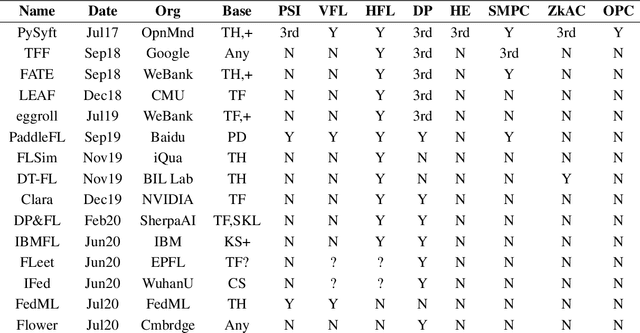

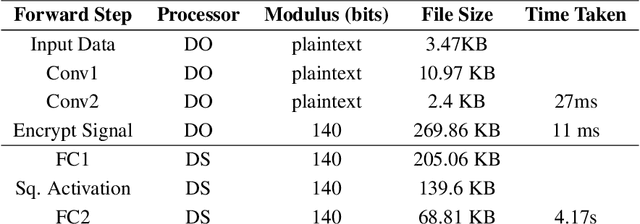
Abstract:We present Syft 0.5, a general-purpose framework that combines a core group of privacy-enhancing technologies that facilitate a universal set of structured transparency systems. This framework is demonstrated through the design and implementation of a novel privacy-preserving inference information flow where we pass homomorphically encrypted activation signals through a split neural network for inference. We show that splitting the model further up the computation chain significantly reduces the computation time of inference and the payload size of activation signals at the cost of model secrecy. We evaluate our proposed flow with respect to its provision of the core structural transparency principles.
PyVertical: A Vertical Federated Learning Framework for Multi-headed SplitNN
Apr 14, 2021

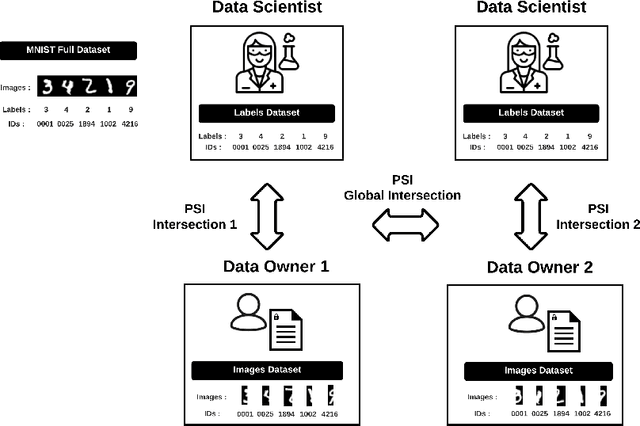

Abstract:We introduce PyVertical, a framework supporting vertical federated learning using split neural networks. The proposed framework allows a data scientist to train neural networks on data features vertically partitioned across multiple owners while keeping raw data on an owner's device. To link entities shared across different datasets' partitions, we use Private Set Intersection on IDs associated with data points. To demonstrate the validity of the proposed framework, we present the training of a simple dual-headed split neural network for a MNIST classification task, with data samples vertically distributed across two data owners and a data scientist.
Asymmetric Private Set Intersection with Applications to Contact Tracing and Private Vertical Federated Machine Learning
Nov 18, 2020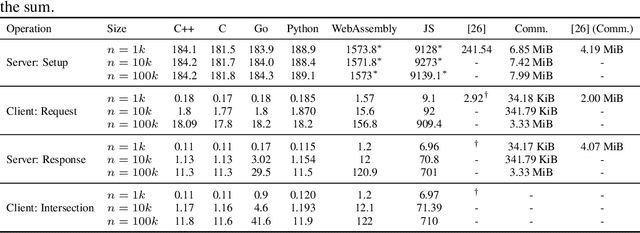
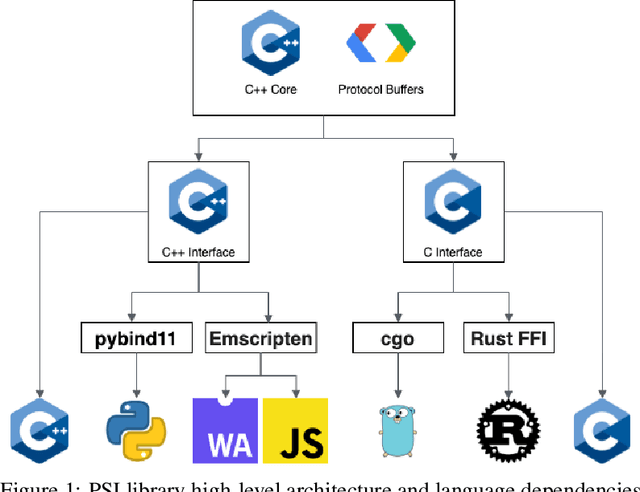


Abstract:We present a multi-language, cross-platform, open-source library for asymmetric private set intersection (PSI) and PSI-Cardinality (PSI-C). Our protocol combines traditional DDH-based PSI and PSI-C protocols with compression based on Bloom filters that helps reduce communication in the asymmetric setting. Currently, our library supports C++, C, Go, WebAssembly, JavaScript, Python, and Rust, and runs on both traditional hardware (x86) and browser targets. We further apply our library to two use cases: (i) a privacy-preserving contact tracing protocol that is compatible with existing approaches, but improves their privacy guarantees, and (ii) privacy-preserving machine learning on vertically partitioned data.
A Distributed Trust Framework for Privacy-Preserving Machine Learning
Jun 03, 2020



Abstract:When training a machine learning model, it is standard procedure for the researcher to have full knowledge of both the data and model. However, this engenders a lack of trust between data owners and data scientists. Data owners are justifiably reluctant to relinquish control of private information to third parties. Privacy-preserving techniques distribute computation in order to ensure that data remains in the control of the owner while learning takes place. However, architectures distributed amongst multiple agents introduce an entirely new set of security and trust complications. These include data poisoning and model theft. This paper outlines a distributed infrastructure which is used to facilitate peer-to-peer trust between distributed agents; collaboratively performing a privacy-preserving workflow. Our outlined prototype sets industry gatekeepers and governance bodies as credential issuers. Before participating in the distributed learning workflow, malicious actors must first negotiate valid credentials. We detail a proof of concept using Hyperledger Aries, Decentralised Identifiers (DIDs) and Verifiable Credentials (VCs) to establish a distributed trust architecture during a privacy-preserving machine learning experiment. Specifically, we utilise secure and authenticated DID communication channels in order to facilitate a federated learning workflow related to mental health care data.
 Add to Chrome
Add to Chrome Add to Firefox
Add to Firefox Add to Edge
Add to Edge